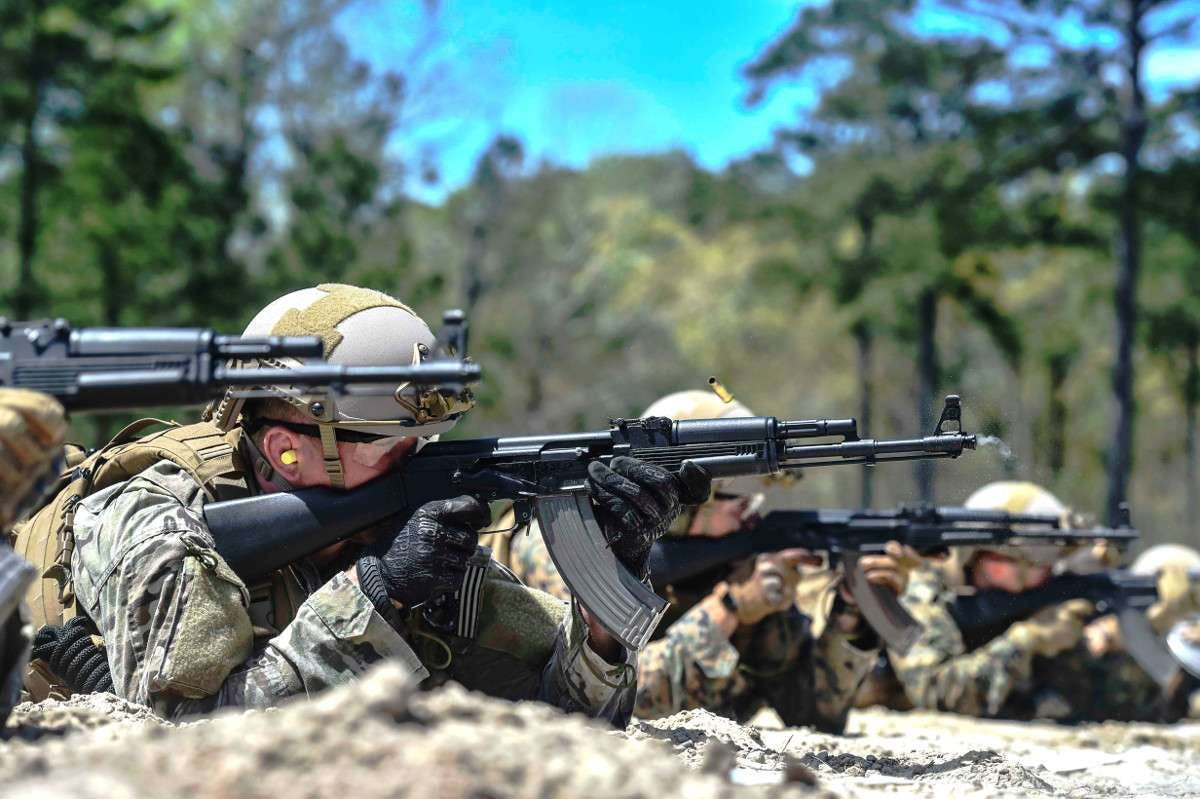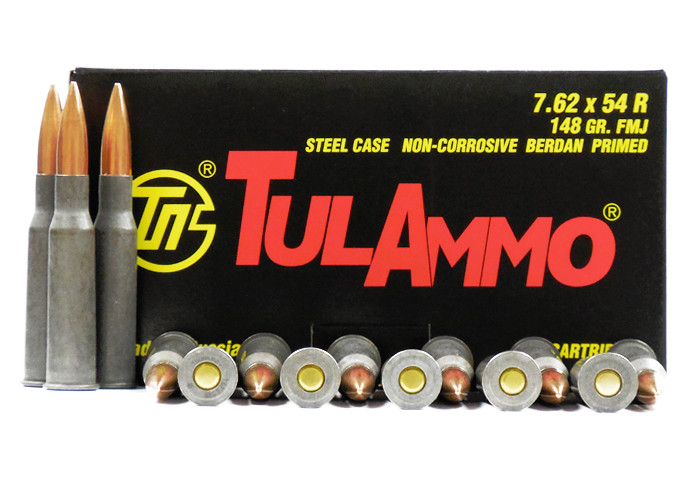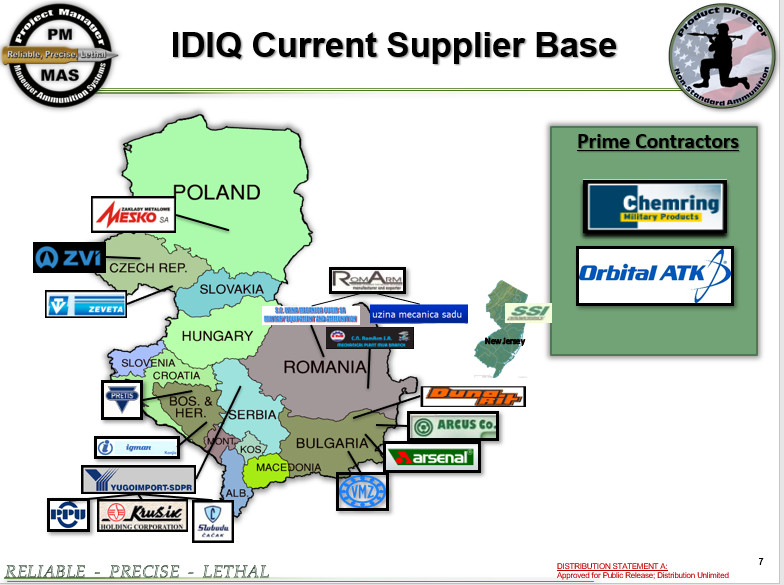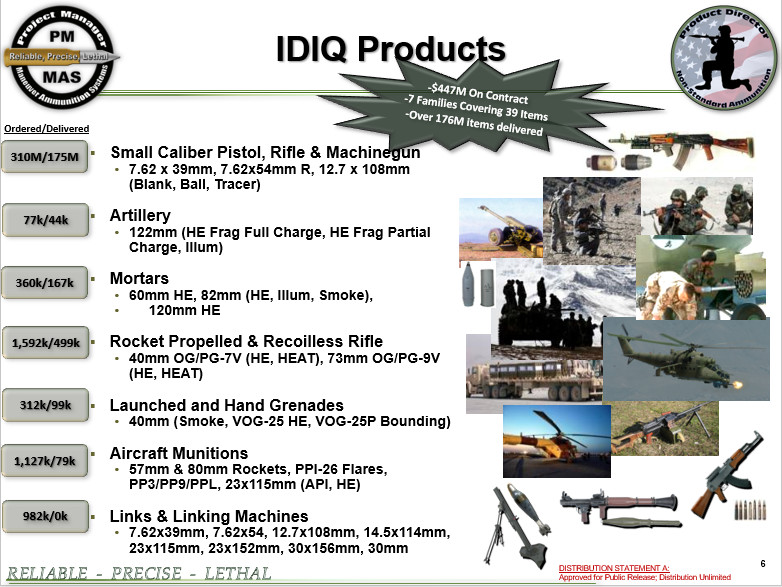Russia’s top state-owned industrial conglomerate, Rostec, says it would be more than happy to sell ammunition to the U.S. military for Soviet-style rifles and machine guns, such as the Kalashnikov AK family of rifles, if the United States would just lift the relevant sanctions. Every year, the U.S. Army buys significant quantities of these rounds, as well as the guns themselves, to support a host of requirements within the U.S. government, especially from special operations forces, and in order to supply such ordnance to American allies and partners abroad.
A Rostec spokesperson made the comments to Russian state-run media outlet TASS on May 28, 2019. The statement came in direct response to a story on Defence Blog regarding a new Army contracting announcement regarding the service’s plan to hire contractors to supply an indefinite quantity of various types of ammunition associated with Soviet and Russian-type firearms between Fiscal Years 2021 and 2026.
The prospective order would include, but is not limited to purchases of the ubiquitous 7.62x39mm round that various AK-style rifles and derivatives use, the 5.45x39mm cartridge for AK-74 rifles and derivatives, the PK-series light machine guns’ 7.62x54mm round, and the 12.7x108mm cartridge for DShK and other Russian-made heavy machine guns. The YaKB rotary-barrelled machine gun found on many variants of the iconic Hind gunship helicopter, among others, also uses the latter 12.7mm round.
You can see all of the different rounds the Army wants as part of this particular contract below:

The Army acts as a central manager for the U.S. government purchases of these and other kinds of so-called “non-standard” ammunition, which simply means they are not in regular use within the U.S. military. U.S. military units, particularly special operations units, often train with foreign weapons that they might expect to find on deployments, either as part of training programs for foreign forces or as part of covert or clandestine activities that may require the use of weapons not typically associated with the United States.

Troops assigned to perform the role of the “opposing force” during training exercises will often use foreign-made weapons to better reflect potential hostile forces and their capabilities. Intelligence entities also need access to this kind of ammunition as part of “foreign materiel exploitation” activities, or FME, to analyze the capabilities of captured weapons. Research and developmental work also demands foreign ammunition in order to test things such as individual and vehicle armor. Bulk purchases of non-standard ammunition support a wide variety of U.S. military assistance programs, as well.
“Basic characteristics demonstrate that modern Russian ammunition is the world’s best,” Rostec’s spokesman boasted to TASS. “Original and high-quality Russian-made ammunition can be supplied to the United States only if relevant sanctions are lifted.”
The claim that Russian-made ammunition is superior to all others is completely unfounded. However, it is worth noting that ammunition companies in Russia produce ammunition of a variety of quality levels, including brass-cased types with non-corrosive primers, just like their Western counterparts. Stereotypical lower-quality ammunition from Russian factories, much of which uses cheaper to manufacture steel cartridge cases, does not reflect the entirety of the country’s present-day ammunition production capabilities.

But Rostec isn’t wrong that U.S. government sanctions on the Kremlin and Russian-state owned enterprises have made it impossible for Russia’s ammunition manufacturers to bid on American military contracts. For years now, the United States has slapped the Kremlin and its associates with an increasing number of economic restrictions over the murder of journalists, Russia’s illegal seizure of Ukraine’s Crimea region and active support for insurgents fighting the government in Kiev, Russian support for Syria’s brutal dictator Bashar Al Assad, and the Kremlin’s meddling in the 2016 U.S. presidential election, to name just a few inciting incidents.
One of the most recent U.S. government actions came in 2017 when Congress passed the Countering America’s Adversaries Through Sanctions Act (CAASTA), which targeted Russia, as well as Iran and North Korea. There have been concerns that CAASTA would lead to a total ban on the commercial sale of Russian-made ammunition, which is popular in the United States for its low price, but that has not occurred. In addition, at least one American distributor, Sporting Supplies International (SSI), which owns the well-known Wolf brand, had already stopped selling Russian-made rounds due to legal disputes.
But Russia is hardly the only country in question to produce the ammunition the Army is looking to buy. As of 2015, the service was relying on Orbital ATK, now a division of Northrop Grumman, and Chemring to source the rounds through a network primarily of former Soviet bloc countries, including present-day NATO members, such as Poland, the Czech Republic, Romania, and Bulgaria. New Jersey-based SSI, which today relies on various European suppliers itself, was also a subcontractor at that time.


It’s an arrangement that certainly irks the Kremlin, which often accuses the U.S. government of actively trying to force it out of the international arms trade and keep it out of the lucrative American domestic firearms market. “This is unfair competition in its purest form,” a spokesperson for Russia’s state-run arms broker Rosoboronexport told Reuters in regards to American sanctions in April 2018.
For example, a cloud of controversy continues to surround Florida-based Kalashnikov USA, which maintains it has no direct links to Russia’s Kalashnikov Concern, though the two previously had a deal to import Russian-made AK-style rifles into the United States. That arrangement collapsed after the imposition of certain U.S. sanctions in 2014. The American firm is now looking to build rifles of this type domestically, but there are reports it is now under investigation for sanctions violations over the potential use of parts it has imported from Russia.

The U.S. government now has a program that actively provides block grants to allies and partners specifically to support them in replacing Russian-made, as well as Chinese-produced, military equipment with American weaponry, as well. But, at least so far, this effort seems mainly focused on larger items, such as helicopters and armored personnel carriers, rather than small arms.
That might change in the future. In October 2018, Rostec had responded angrily to reports that U.S. Special Operations Command was looking for a domestic source to make American analogs for the AK rifle family, the PKM light machine gun, and the NSV heavy machine gun, a project you can read about more here. Beyond Kalashnikov USA, there are already companies that build AK-pattern guns for the civilian market in the United States.
Still, there’s no indication that those new weapons would stop using Soviet-style ammunition types. Even if American allies and partners abandoned all weapons using those calibers, it wouldn’t eliminate the need for non-standard ammunition supplies for realistic training, FME, and other developmental purposes, either.
So, it looks as if the Army is set to continue buying this kind of ammunition for the foreseeable future. But unless U.S.-Russian relations dramatically change, however, it’s unlikely that Russian companies, especially those under the Rostec umbrella, will be fulfilling those orders any time soon.
Contact the author: jtrevithickpr@gmail.com
